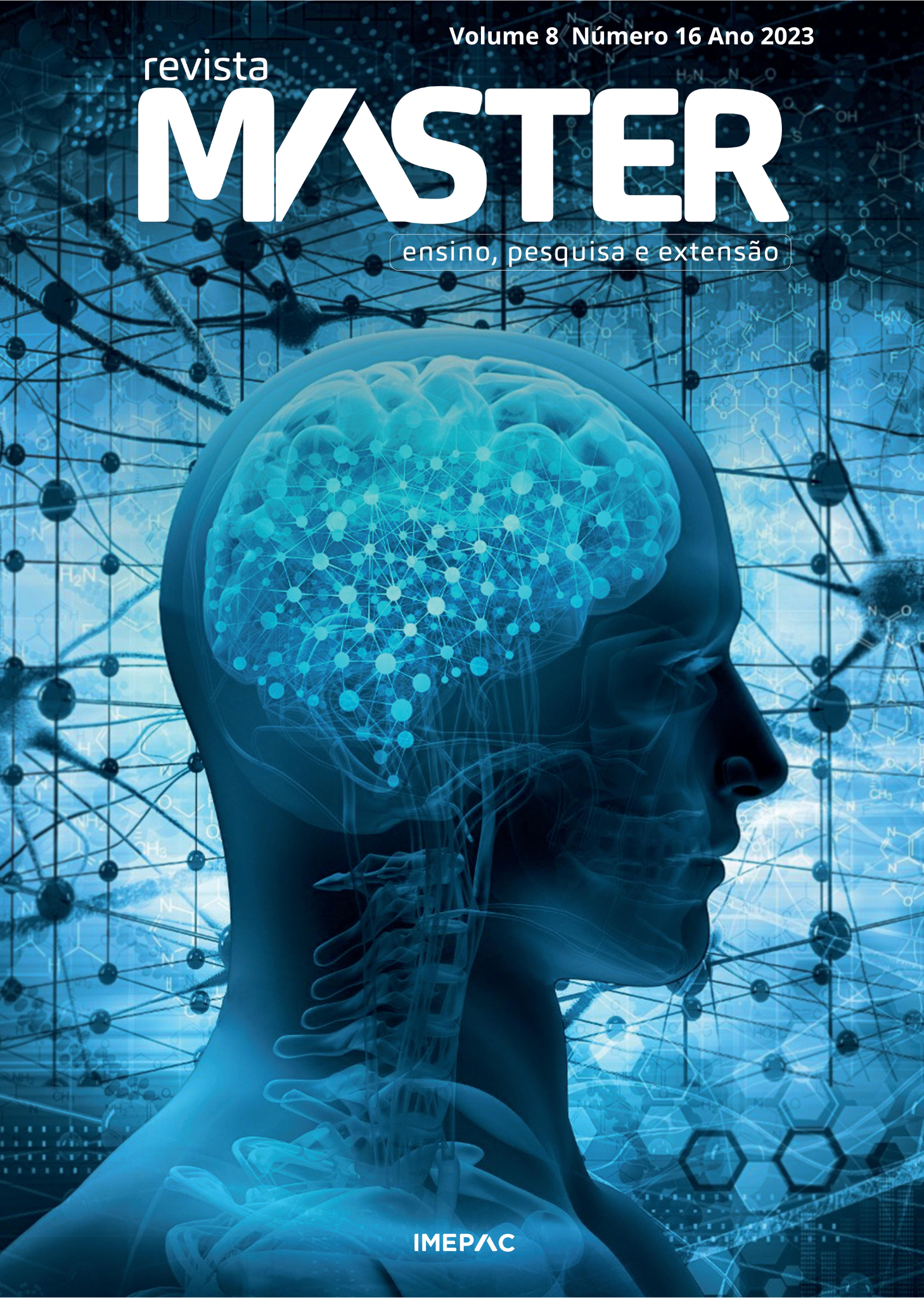Use of neuromodulation for the treatment of major depression and other mental health problems: An integrative review.
DOI:
https://doi.org/10.47224/revistamaster.v8i16.363Keywords:
Neuromodulação; Estimulação transcraniana; Depressão; Doença mental; Antidepressivo.Abstract
The purpose is to present an updated review regarding the use of Neuromodulation in cases of Major Depressive Disorder (MDD). This is an integrative literature review, which includes criteria where articles were available online, published in the Scientific Electronic Library Online (SciELO), Web of Science and National Library of Medicine (PubMed\Medline) and Virtual Health Library (BVS), and that portrayed the topic non-invasive brain stimulation (NIBS). Seven articles were analyzed, all with positive outcomes, corroborating the functionality of the technique and explaining its difficulty in application in a clinical setting. It was found that there are several neuromodulation techniques being studied and used, with specificity for the applicability of Transcranial Direct Current Stimulation (tDCS), which has been shown to be effective for the treatment of MDD. Neuromodulation is a subject that has been studied and published frequently in the international literature, but with little national repercussion, since only studies published in English were found.
Downloads
References
BRUNONI, André et al. Neuromodulation approaches for the treatment of major depression: challenges and recommendations from a working group meeting. Arq. Neuro-Psiquiatr, v. 68(3). São Paulo, junho de 2010. Disponível em: https://doi.org/10.1590/S0004-282X2010000300021. DOI: https://doi.org/10.1590/S0004-282X2010000300021
MOFFA, Adriano et al. Novel neurotherapeutics in psychiatry: use and rationale of transcranial direct current simulation in major depressive disorder. Rev. psiquiatr. clín. v. 41(1). São Paulo, abril de 2014. Disponível em: https://doi.org/10.1590/0101-60830004111520. DOI: https://doi.org/10.1590/0101-60830004111520
IANNONE, Aline et al. Transcranial magnetic stimulation and transcranial direct current stimulation appear to be safe neuromodulatory techniques useful in the treatment of anxiety disorders and other neuropsychiatric disorders. Arq. Neuro-Psiquiatr. v. 74 (10), São Paulo, outubro de 2016. Disponível em: https://doi.org/10.1590/0004-282X20160115. DOI: https://doi.org/10.1590/0004-282X20160115
IANNONE, Aline et al. Therapeutic effect of transcranial direct current stimulation on neuropsychological symptoms of an elderly patient: A case report. Dement. neuropsychol. v. 11 (3), São Paulo, julho – setembro de 2017. Disponível em: https://doi.org/10.1590/1980-57642016dn11-030014. DOI: https://doi.org/10.1590/1980-57642016dn11-030014
HYDE, Joshua et. Efficacy of neurostimulation across mental disorders: systematic review and meta-analysis of 208 randomized controlled trials. Molecular Psychiatry, v. 27, p. 2709–2719, abril de 2022. Disponível em: https://academic.oup.com/brain/article/145/1/83/6555934. DOI: https://doi.org/10.1038/s41380-022-01524-8
WANG, Hongxing et al. Transcranial alternating current stimulation for treating depression: a randomized controlled trial. Brain Sci., v. 145, n. 1, p. 83–91, dezembro de 2021. Disponível em: https://doi.org/10.1093/brain/awab252. DOI: https://doi.org/10.1093/brain/awab252
LABREE, Bas. Determining the Effects of Transcranial Direct Current Stimulation on Tinnitus, Depression, and Anxiety: A Systematic Review. Brain Sci., v. 12(4), n. 484, abril de 2022. Disponível em: https://www.mdpi.com/2076-3425/12/4/484. DOI: https://doi.org/10.3390/brainsci12040484
Downloads
Published
How to Cite
Issue
Section
License
Copyright (c) 2023 Revista Master - Ensino, Pesquisa e Extensão

This work is licensed under a Creative Commons Attribution-NonCommercial 4.0 International License.
Política para Periódicos de Acesso Livre
Autores que publicam nesta revista concordam com os seguintes termos:
a) A licença desses direitos autorais abrange o direito exclusivo da Revista Master - Ensino, Pesquisa e Extensão para reproduzir, publicar e distribuir o artigo,
nacional e internacionalmente, incluindo reimpressões, traduções, reproduções fotográficas, microformas, formulários eletrônicos (offline, on-line) ou qualquer outra reprodução de natureza similar.
b) O (s) autor (es) aprovam que o manuscrito não pode ser retirado ou reenviado para qualquer outro Jornal/Revista enquanto a avaliação pelos pares estiver em andamento. Após aprovado o manuscrito, um autor pode auto-arquivar uma versão de seu artigo em seu próprio site e/ou em seu repositório institucional.
c) O (s) autor (es) declaram que são integralmente responsáveis pela totalidade do conteúdo da contribuição e que a Revista Master - Ensino, Pesquisa e Extensão e o corpo editorial da Revista Científica do estão expressamente isentos de qualquer responsabilidade sobre o conteúdo do artigo, métodos, técnicas e resultados de sua pesquisa, tendo, assim, finalidade meramente informativa e educativa.
d) Autores têm autorização para assumir contratos adicionais separadamente, para distribuição não-exclusiva da versão do trabalho publicada nesta revista (ex.: publicar em repositório institucional ou como capítulo de livro), com reconhecimento de autoria e publicação inicial nesta revista.




